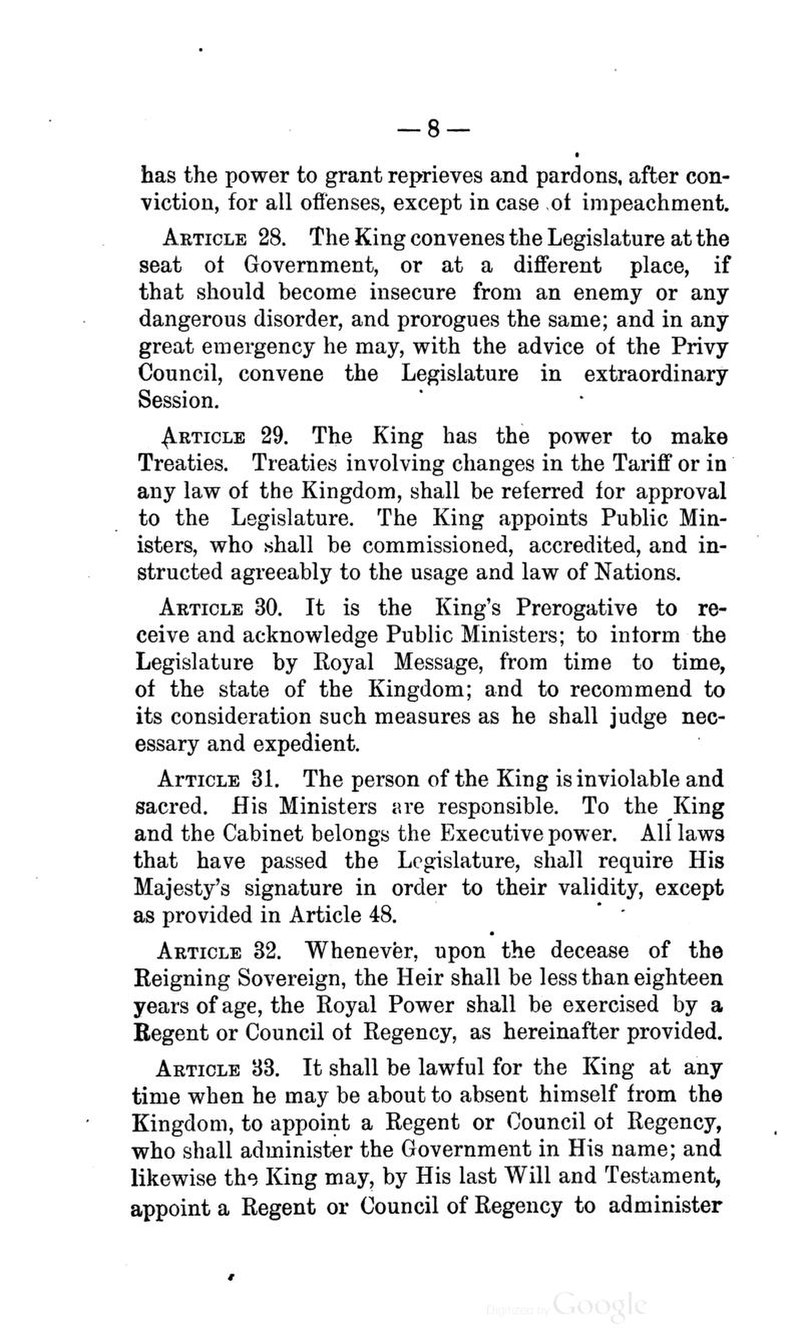—8—
has the power to grant reprieves and pardons, after conviction, for all offenses, except in case of impeachment.
Article 28. The King convenes the Legislature at the seat of Government, or at a different place, if that should become insecure from an enemy or any dangerous disorder, and prorogues the same; and in any great emergency he may, with the advice of the Privy Council, convene the Legislature in extraordinary Session.
Article 29. The King has the power to make Treaties. Treaties involving changes in the Tariff or in any law of the Kingdom, shall be referred for approval to the Legislature. The King appoints Public Ministers, who shall be commissioned, accredited, and instructed agreeably to the usage and law of Nations.
Article 30. It is the King's Prerogative to receive and acknowledge Public Ministers; to inform the Legislature by Royal Message, from time to time, of the state of the Kingdom; and to recommend to its consideration such measures as he shall judge necessary and expedient.
Article 31. The person of the King is inviolable and sacred. His Ministers are responsible. To the King and the Cabinet belongs the Executive power. All laws that have passed the Legislature, shall require His Majesty's signature in order to their validity, except as provided in Article 48.
Article 32. Whenever, upon the decease of the Reigning Sovereign, the Heir shall be less than eighteen years of age, the Royal Power shall be exercised by a Regent or Council of Regency, as hereinafter provided.
Article 33. It shall be lawful for the King at any time when he may be about to absent himself from the Kingdom, to appoint a Regent or Council of Regency, who shall administer the Government in His name; and likewise the King may, by His last Will and Testament, appoint a Regent or Council of Regency to administer
